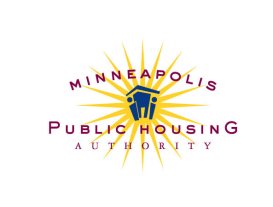Alliance Opposes Privatization of Public Housing
As the Minneapolis City Council prepares to vote on a Memorandum of Understanding with the Minneapolis Public Housing Authority, the Alliance submitted a letter to city council members and Mayor Jacob Frey opposing privatization of any MPHA properties. Read the full letter below.
 The Alliance is a coalition of community-based organizations and advocacy groups in the Twin Cities region that believes housing is a fundamental human right, not a purely market-rate commodity. Public housing provides a crucial community asset for those who have the highest barriers to stable shelter, including seniors, children, people with disabilities and communities of color, indigenous people and immigrants who have been systematically locked out of housing and wealth-building opportunities by government and private practices for generations.
The Alliance is a coalition of community-based organizations and advocacy groups in the Twin Cities region that believes housing is a fundamental human right, not a purely market-rate commodity. Public housing provides a crucial community asset for those who have the highest barriers to stable shelter, including seniors, children, people with disabilities and communities of color, indigenous people and immigrants who have been systematically locked out of housing and wealth-building opportunities by government and private practices for generations.
While we applaud the city’s intention to protect these public assets and ensure the rights of public housing residents are upheld through Guiding Principles and a Memorandum of Understanding with the Minneapolis Public Housing Authority (MPHA), we are deeply concerned with many of the impacts of federally sanctioned public housing conversions. The Alliance strongly opposes privatization of any MPHA properties through the Rental Assistance Demonstration (RAD) program or by any other means — and feels the City needs to explicitly reject the permanent private conversion of public assets like the buildings and land on these parcels.
We understand the financial challenges that federal cutbacks have caused for MPHA and public housing authorities across the nation. Turning to the RAD program to solve a significant funding crisis feels like a quick fix to a deeply structural problem — for several decades, policy makers at all levels of government have not secured the funding resources needed to keep up and maintain these public housing units, so in the absence of public leadership we drift towards a private sector solution.
Over many months, residents at Glendale Townhomes and Elliot Twin Towers, along with allies like Twin Cities Musicians Against Gentrification, have mobilized and spoken out powerfully and consistently against privatization. Unfortunately, it does not appear that public housing tenants have been actively involved in the exploration of funding options nor the crafting of policy strategies. This is antithetical to the core equity values the city of Minneapolis has expressed regarding its commitment to authentic community engagement. Moving forward, the city should commit to a community-centered “co-creation process” with public housing residents. We believe that people are experts in their own lives and are best equipped to know the interests and needs of their families and communities — and stand with local public housing residents and a growing number of community-based organizations in their continued concern about the displacement of families at a time of dire housing shortages and the long-term loss of affordable housing through privatization.
While provisions outlined in the Minneapolis Guiding Principles and MOU around tenant protections are laudable, there is evidence that these principles may be incompatible with the privatization of public housing through RAD. In addition to local groups, the National Housing Law Project has expressed concerns about the RAD program and documented numerous instances in which the principles in the Minneapolis resolution — including the right to return, to not have rent increased, and to have access to an effective grievance process — have been promised but not fulfilled. In March 2018, the General Accounting Office (GAO) released a 72-page report evaluating the RAD program that revealed inadequate HUD oversight of tenant protections, serious questions about the long-term preservation of RAD properties, and inflated reports of private funding leveraged through RAD. A recent investigation by ThinkProgress pointed to the historically low levels of staffing at HUD divisions that oversees fair housing complaints or allegations of discrimination during RAD conversions. For instance, the Office of Fair Housing and Equal Opportunity plummeted from 744 full-time employees in 2003 to just 491 by 2018.
Even in the best case scenario, in which private investors protect tenants’ rights and provide the needed funding to make repairs and rehab to aging housing stock (and HUD provides appropriate oversight), there are ongoing fears that these deeply affordable units could be lost to the private market if mechanisms are not put into place to address the expiration of their limited contract with the MPHA. In essence, the affordability of those units could be on borrowed time, lost to market rates and pushed wildly out of reach of the residents they now serve in as little as 20 years — after decades of investment from federal and local taxpayers.
Minneapolis can do better. In 2018, the city council found creative and innovative solutions to preserving naturally occurring affordable housing and expanded available funding. It also passed a bold comprehensive plan that recognizes the inability of the private market to solve our housing challenges and acknowledges the historic and ongoing harms of discrimination against the very populations served by public housing. The Alliance and our coalition partners urge you to reject any efforts to privatize public housing assets. We look forward to working with city officials and staff to identify and pursue strategies that don’t put tenants at risk but rather secures additional resources and keeps these valuable properties within the public realm.

You must be logged in to post a comment.